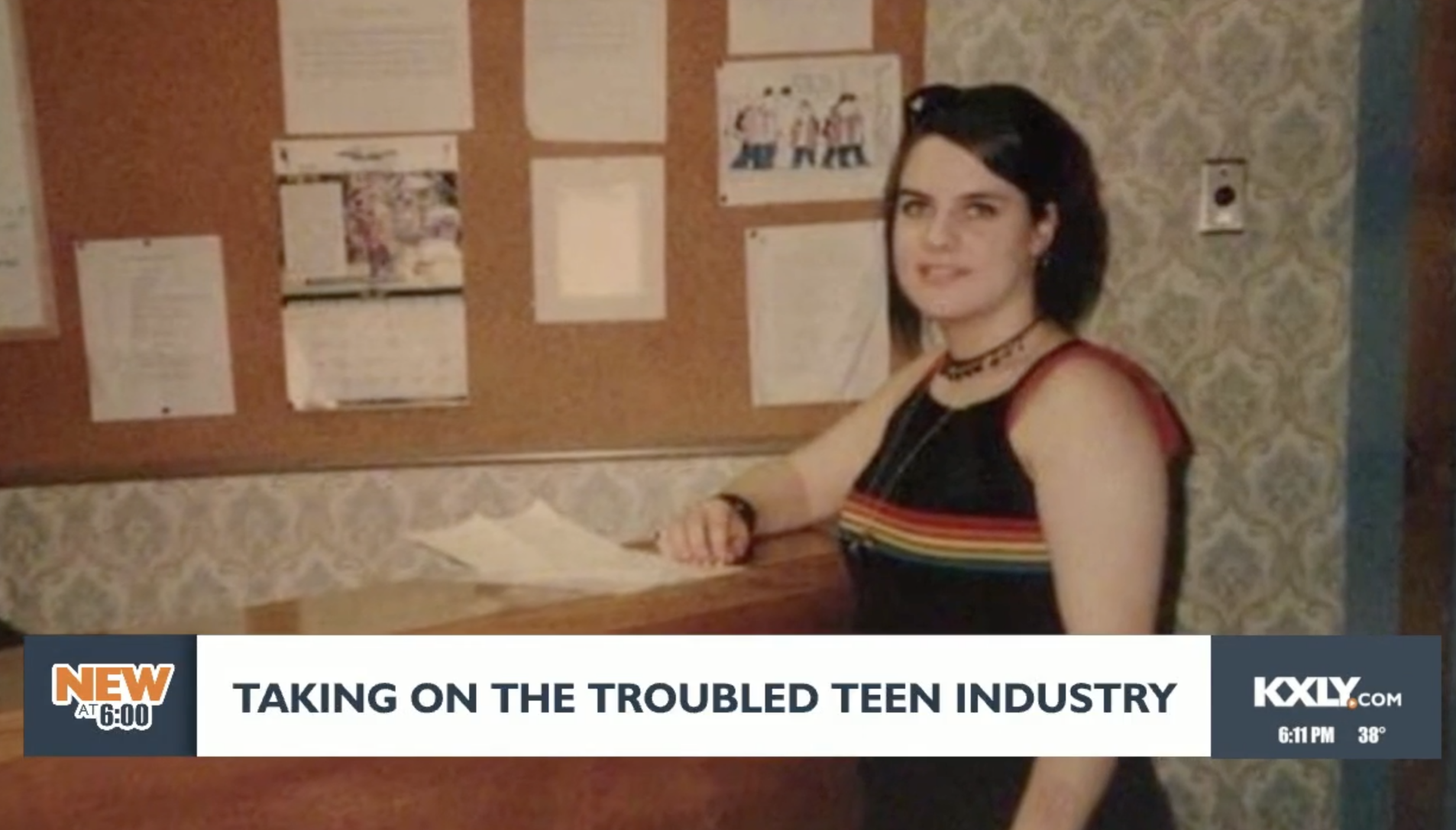SPOKANE, WA — Imagine waking up in the middle of the night, taken from your bed by people you don’t know to a strange facility.
Then imagine finding out this was consented to and paid for by your own parents.
This is the reality for thousands of kids across the U.S. and right here in the Inland Northwest who are sent to youth residential programs.
The programs claim to ‘help’ and ‘fix’ troubled teens, but often those teens suffer years of abuse and lifelong trauma.
Melanie Brennan admits she was not the best kid when she was 17 years old and growing up in North Spokane.
“I had a lot of depression. There was some trouble at home between my parents and I[sic]. We just didn’t see eye to eye. I did realize there were things that needed to be done, but what I didn’t expect is that I was going to be shipped away,” said Brennan.
Her parents didn’t know what to do.
“I was in therapy, and so was my mom, and my understanding is the therapist said, you know, here is a great place that they had heard about. This can help Melanie. This will fix her. This will bring her back,” said Brennan.
But what was marketed as help, Melanie said, did more harm.
“I ended up getting taken in the middle of the night. I was at a friend’s house. I was staying the night, and I was taken by two strange men I didn’t know. They held me by my wrists and my ankles and said, ‘You can either come the easy way or the hard way,’ and I fought, of course,” said Brennan. “They took me, ankles and hands, and put me in a car and then transported me to Coeur d’Alene, Idaho. I was there for 60 days, and then after that, I was taken to Southern Utah.”
While there, Melanie said she was put through years of mental and physical abuse, manipulation, and days of isolation.
“You are not allowed to talk to anybody, and you can’t look outside windows; that is considered ‘run plans.’ You are completely in a sealed facility. I had a knee on my back. I was held down,” said Brennan. “I was highly medicated and drugged. They put me on a lot of anti-psychotics and anti-depressants and mood stabilizers.”
According to Melanie, Cross Creek Manor, the facility she was brought to in Utah, is now closed, but many more like it are popping up across the country.
Recently, stories like Melanie’s have been brought to the spotlight through shows like “The Program” on Netflix and celebrities like Paris Hilton opening up about her own time in a youth residential program and the abuse she endured.
Hilton has now turned her experience into activism. She has spoken to lawmakers across the country and is trying to pass legislation demanding more financial oversight and regulation of these facilities.
Caroline Cole is a policy strategist on Hilton’s team and says federal dollars largely fund these facilities.
“With the data that we have, we have seen that this is a $23 billion-a-year industry, and that is just federal funds, and so for the very first time, this bill would start to create accountability,” said Cole.
Last year, they introduced the ‘Stop Institutional Child Abuse Act’ and have been working since to get it passed, garnering a massive amount of support from lawmakers on both sides of the aisle, including our local leaders.
Earlier this year, Hilton’s team and local survivors like Melanie met with Congresswoman Cathy McMorris Rodgers, hoping to gain her support for the bill.
“I have had the opportunity to meet with several [people] here locally, and it is compelling. We need to take action. We all agree we must be protecting our children in these institutions,” said Rep. McMorris Rodgers. “I support the legislation. I support the legislative efforts on Capitol Hill to bring more transparency. We are going to continue to work to see if there is a path forward this Congress.”
According to Cole, along with financial oversight, Hilton’s team hopes to create a path for more local outpatient options for kids who still need extra help and parents who don’t know where to turn.
“We know there will be young people out there who need a more serious level of care. They need a higher level of intervention, and we believe that care should be safe, it should be effective, it should be evidence-based, and it should be short-term. Right? We don’t want to see these kids in facilities for three years, four years, six, seven, eight years,” said Cole.
Melanie has been out of the program for almost 20 years now but says the treatment and abuse she experienced there will never go away.
“I constantly feel like I am doing something wrong. It doesn’t matter. It is always there. I’m doing something wrong. I’ve screwed up. They’re gonna find out. I don’t even know what they are finding out, but they’re gonna find it out,” said Brennan.
But now she hopes her story can serve as an example and stop any future abuse.
“I just want there to be more visibility because the biggest problem is that these places are still around. My chance of not going is long past, but I’m here for the kids now,” said Brennan.
Right now, the ‘Stop Institutional Child Abuse Act’ is stuck in the House Committee on Energy and Commerce, which Rep. McMorris Rodgers chairs.
Paris and her team hope the bill will be heard on the House floor before the end of the session in January.
That is also the end of Representative McMorris Rodgers’ term.
COPYRIGHT 2024 BY KXLY. ALL RIGHTS RESERVED. THIS MATERIAL MAY NOT BE PUBLISHED, BROADCAST, REWRITTEN OR REDISTRIBUTED.


